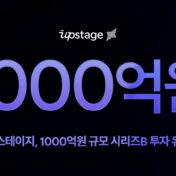In January in Davos, Switzerland, South Korea’s first female President, Park Geun-Hye pushed forward with a multi-billion “Creative Economy” policy. Although Korea has seen a great rise in GDP and living conditions in the last 50 years, President Park now believes the current economic growth environment in Korea has reached its limit, and just like startups often need to, she has decided to pivot the Korean economy to embrace innovation as a strategy for further growth and economic sustainability.
Korea is full of vibrant and passionate individuals with the smarts and energy to push and compete on a global playing field. Unfortunately, the understanding and support from the citizens and from the Korean government has led to a fertile breeding ground for mostly the largest Korean conglomerates, known locally as chaebols, marginalizing small and medium sized enterprises (SMEs) and making success as a startup all but impossible. This situation was hammered home in a recent poll which suggests that as many as 80-90% of parents disapprove of entrepreneurship for their children.
Why is this important?
In Korea, unlike in western countries, parents have a heavy influence on their children’s career path and provide most of the financing for education and business, meaning that young Koreans are often beholden to their parents’ whims, which are often conservative and outdated. Can President Park win over this nation of conservative savers who respect order and the status quo above change and the uncertainty of an innovation driven economy? Can they change their perception of entrepreneurship so that the younger generation can use the opportunities of an altering landscape of platforms and technology to impact the country and possibly the world with new businesses that can match the huge success of the likes of Samsung or Hyundai?
The new President needed to introduce the “Creative Economy” to set a new precedence and to ignite the stagnant economy and job market. She understands that without changes, the country and economy will be unable to address the high unemployment level and widening economic inequality, especially for new college graduates and an aging population (the detriments of which are clearly visible in Korea’s neighbor, Japan). Korea, like the rest of rising and somewhat fragile economies around the world, needs to encourage more creative ideas and entrepreneurship. Acceptance of a ‘creative economy’ can expand on the economic base stabilized by traditional manufacturing industries and provide the country with new growth products and possibly diversify the country's reach into ever growing cutting-edge technologies.
Already big industry in Korea has realized the need for change, with some of some of the top chaebols setting up accelerators in Silicon Valley and not in Korea (note Samsung’s $1Bn innovation center in Silicon Valley). Many observers and startup ecosystem participants nervously and eagerly wait to see how the government will influence the young ecosystem.
Korea’s Startup Ecosystem
In Korea, everyone is familiar with KakaoTalk and Coupang. They will be seeking their IPO exits in the middle of next year, at what are expected to be multi-billion dollar exits. This should continue to strengthen the ecosystem with more millionaires to mentor and super angels that give back to the startup community. However, the one big catalyst the ecosystem still lacks is the next Mark Zuckerberg from Korea. Someone with inspiration that can create something new from scratch without $100 million (which KakaoTalk’s chairman brought to the table). Someone who can inspire a new generation of entrepreneurs to dream big and deliver on the opportunities of a new age of almost infinite possibility.
To understand the current stage of Korea’s ecosystem, one can consider the example of KakaoTalk. As one of the hottest IPOs in history for Korea (expected next May), they have been financed by a U.S., Japanese and Chinese venture capitalists, including Maverick Capital (US), Cyber Agent Ventures (Japan) and Tencent (China). How could a hot IPO like that not have the backing of Korean funds? What has led to Korean VCs missing this monumental and historic opportunity? And how many Korean investors are now kicking themselves for having let the chance pass them by?
What is the future and is the venture ecosystem changing?
Local hackathons, the emergence of incubators, accelerators and an increasing interest in Korean startups from global venture capitalists combined with the President's increased support for SMEs all have contributed to a building momentum in support of entrepreneurship. There is great hope that it will be enough to trickle down and have a meaningful impact on the mindsets of parents and more importantly future entrepreneurs in Korea. Already a wind of change is blowing and a grassroots movement has begun to accelerate. Seoul is now a hive of activity, with regular packed entrepreneurs’ forums, grass-roots meet-ups, and VCs and accelerators expressing themselves on SNS platforms like Facebook and Twitter.
While much remains to be done, there is a mood of excitement and anticipation in Korea. The old guard that protected the vested interests of the manufacturing elite is making way for a more invigorating style of business that is leading some of the brightest Korean youngsters to consider the road less travelled. This road leads to the unknown, but the challenges of it are being embraced with enthusiasm and the spirit of entrepreneurship.






